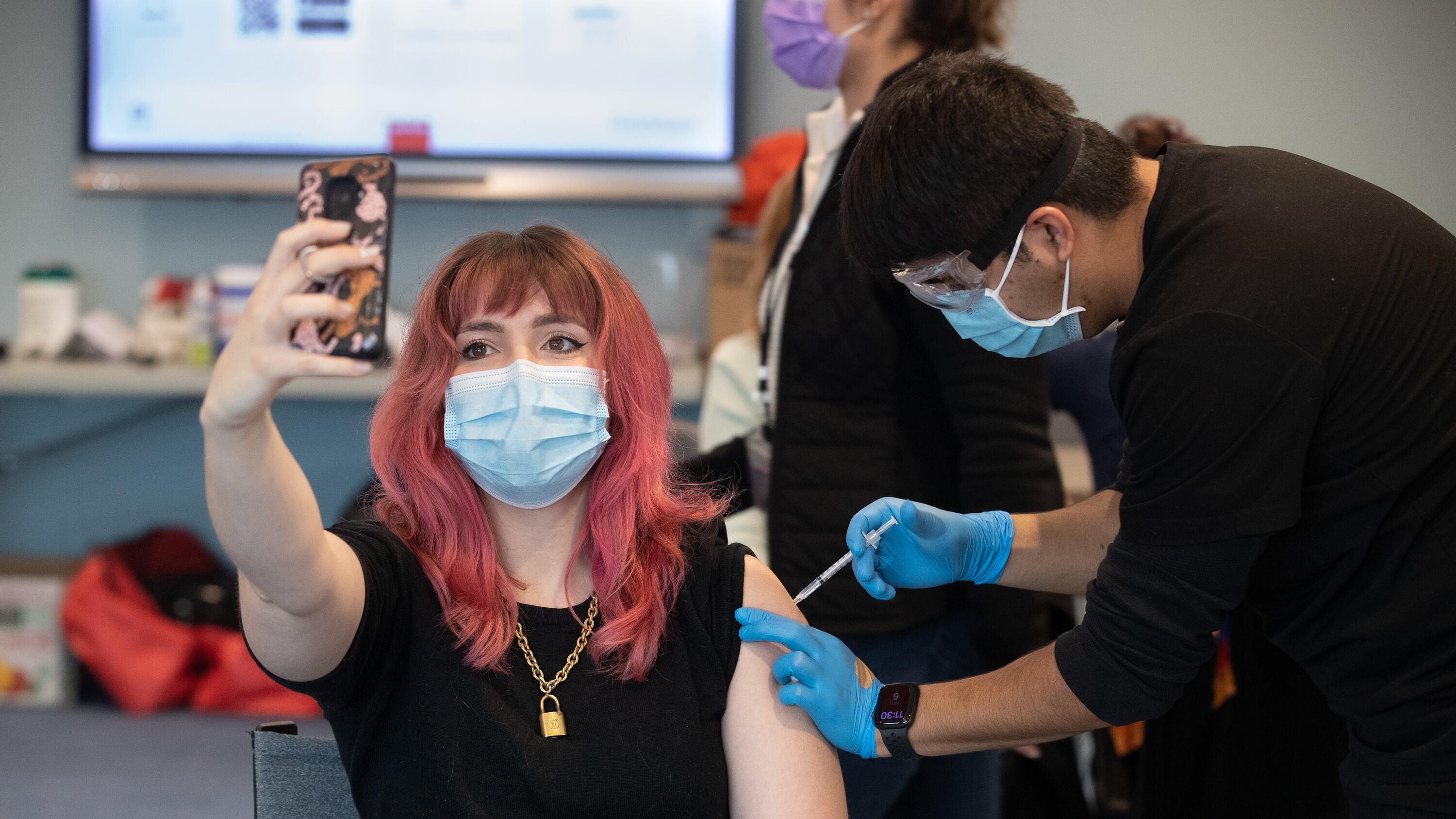Last month, Multnomah County Deborah Kafoury pressed Oregon Gov. Kate Brown to prioritize vaccinating people in prisons and jails.
Prisons and jails throughout the state and country have been centers of some of the largest COVID-19 outbreaks. And Kafoury made a moral and practical case for prioritizing a population that won't win any popularity contests with the public.
"We were heartened by a state process you have described as being centered in an 'equitable system challenging the roles of power, privilege and racism,''" Chair Deborah Kafoury wrote on Dec. 22 in a letter to Brown, obtained this week by WW. "So we are frankly alarmed and dismayed that the actual allocation prioritization as described omits people in our communities who have experienced the most disproportionate rates of infection and death and who deal with long-standing inequities in health care and health access. Among the most egregious examples: a prioritization that brings law enforcement to the forefront, but not those in law enforcement custody whose infection rates nationally are up to four times the general population."
Brown's policy gave priority to medical personnel and emergency responders coming into direct contact with patients. But Oregon will soon begin expanding the groups of people eligible to be vaccinated.
Starting Jan. 23, eligible Oregonians will include teachers and anyone over 65. The governor has said she will leave subsequent decisions about how to prioritize other populations to an advisory committee that met for the first time only last week—and which is scheduled to meet again Jan. 14.
But on Jan. 12, Brown announced the decision on vaccinating anyone over 65.
A spokesman for the governor says the state can't comment on what priority inmates will receive as vaccines are distributed in coming weeks, but prisoners over 65 will be eligible on Jan. 23, just like the general population.
"My understanding is that, due to litigation on the issue of vaccine priority, the State of Oregon has collectively resolved that adults in custody (including youth in custody who are age eligible for the vaccines) will be included in Phase 1b of the vaccine rollout," says spokesman Charles Boyle. "However, some adults in custody are eligible on the same terms as the general population if they satisfy other eligibility criteria—so for example, Governor Brown's decision to expand vaccination to all individuals 65 and older will apply equally to all who qualify, including adults in custody. Due to pending litigation, I can't comment further on the subject of prioritization for adults in custody at this time."
Vaccinating inmates would protect not just prisoners but the officers, lawyers, and medical and other staff who work in the facilities as well as surrounding communities.
"By any moral, ethical, epidemiological and legal perspective, if you vaccinate staff, you must also vaccinate the incarcerated population in their care," Kafoury wrote in her letter.
"In addition to reducing risk, it also would reduce the likelihood of COVID-19 spreading into our county detention and court facilities as people move through the public safety system, and into our transitional housing, homeless shelters and neighborhoods as they are released. We recognize the Herculean task of equitably distributing such a precious limited resource. We ask you to include all those who cannot escape potential outbreaks in your prioritization, from long-term care, to shelters, to corrections facilities. Such a move not only embraces science, but the state's unique responsibility in a pandemic and our shared humanity."
Kafoury's plea may stem in part from COVID-19 outbreaks in Multnomah County jails.
Between Nov. 20 and Dec. 21, three youths at Donald E. Long Juvenile Detention Center tested positive for COVID-19 along with nine staff members. At the Multnomah County Detention Center, the outbreak began Oct. 22, with 10 adults in custody and 23 staff members testing positive. Since Dec. 5, three adults in custody and seven staff members have tested positive at Inverness Jail.
"The epidemiological data is clear that prisons and detention facilities are high-risk settings that justify the same level of concern and countermeasures that are being required in other high-risk congregate care settings," Kafoury added. "Other states recognize this and are placing both staff and incarcerated populations high on their priority lists."

